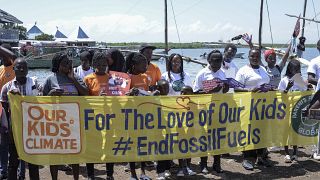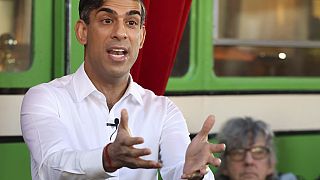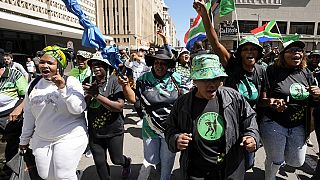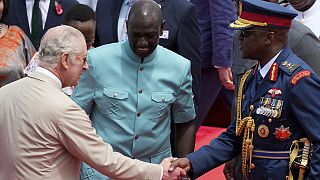South Africa
In this one-room shanty in Johannesburg’s Alexandra Township live Dean and his two children.
He is among millions of South Africans waiting to own a plot of land they can call home after nearly three decades of promises from a post-apartheid government.
“Living in such small space actually, it’s like living like an animal. A dog lives in one room. Your house is like this. That’s why sometimes it just frustrates me. This is not actually for human beings to live in such conditions,” he said.
Alexandra is home to hundreds of thousands of people crowded into a mix of formal and informal structures. Unemployment here runs at 25 percent and violent crime is rife.
During apartheid, the black majority was crowded into urban townships and rural reserves and it was illegal for Africans to acquire land beyond those settlements.
Today, while black people make up 79 percent of the total population only seven percent own urban land. Martha Gumede had to send her son to a relative’s house so she and her daughters can have some privacy when they bath in the same place they live.
“The house that I am living in is very small and I have five children and grandchildren. We cannot wash or do anything in this house, even bath. I had to send my son to live with his aunt even though his aunt does not live in a comfortable place. But I had to send him there anyway. I am now living with the girls. I wish I can get a piece of land where I can build a home for my children and be fine,” said Gumede.
Fifty six-year-old Sheila Ndlovu has lived in her parents one-room house since the ’90s, when Nelson Mandela’s release from prison gave millions of poor black South Africans hope for a brighter future.
“My eyes are full of tears. They are full of tears but you cannot see them. What is even more hurtful is that all the other places have changed but not Alexandra. This place is cluttered and congested, you can’t even see where you are – you understand? So, why does Alexandra not change? Even when the ANC’s Mandela came into power everything else changed but Alexandra defeated him,” said Sheila Ndlovu, a mother of three.
If President Cyril Ramaphosa, who came to power in February after the African National Congress (ANC) ousted Jacob Zuma, can keep his promise to redistribute land to the poor, Ndlovu says she may consider voting for the ruling party in next year’s parliamentary election.
Land is an emotive issue in South Africa, where inequality and racial divisions persist long after the end of apartheid.
But dormant land in itself is not enough says socio-economic researcher, Angelo Fick. The challenge facing the government is managing urbanisation.
“Majority of South Africans live in town’s and cities. More of them want to move to towns and cities. They need to be accommodated and that needs to be done, not just in terms of having access to land but the services that come with living inside towns and cities, which government then needs to provide for. So the challenge for the South African government shall we say 24 years post-apartheid South Africa is to make sure that they manage the urbanising process that was interrupted by apartheid and that means investing in access to land for majority of South Africans and some of that is just basic living conditions in terms of housing and making a home in order to make a life inside a city,” he said.
South Africa has been hit by sporadic demonstrations in the past few years dubbed “service delivery protests”, with residents demanding water, electricity, better housing and jobs.
Giving more poor South Africans land will not solve the huge challenges faced by Ramaphosa: government corruption, sky-high unemployment and relentless demands for jobs, houses and basic services.
But to poor South Africans, living in shacks they don’t own in impoverished townships, while the rich enjoy luxury homes with swimming pools, doesn’t feel like Mandela’s inclusive “Rainbow Nation”.
Reuters











02:01
Abidjan: Residents in distress after the destruction of their homes
01:08
SA poll body seeks clarification from Constitutional court on Zuma's eligibility
02:08
South Africa: Zuma's prosecution bid against Ramaphosa postponed
01:10
New poll finds support for South Africa's ruling ANC is plunging
00:53
Six arrested in connection with the murder of South African player Luke Fleurs
01:00
South Africa: Former president Jacob Zuma cleared to run in upcoming elections